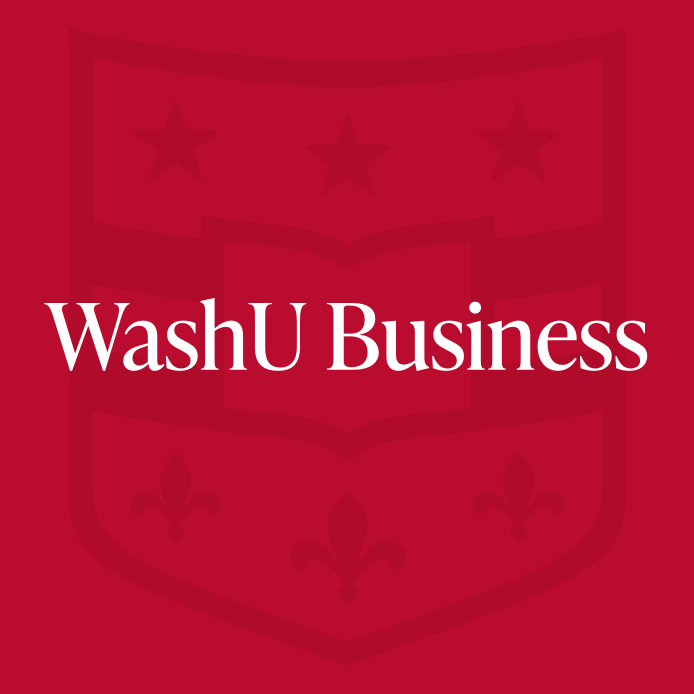Why a full-time MBA program is always a good bet
- August 12, 2022
- By WashU Olin Business School
- 4 minute read

Considering entering an MBA program? Your timing is outstanding. According to research from the Graduate Management Admission Council, 91% of recruiters were planning to hire graduate management talent who possessed MBA degrees in 2021.
Reports from GetSmarter support the accuracy of those findings, revealing that 83% of companies said they planned to onboard MBAs in 2021. In other words, you’re on the right track if you’re considering pursuing an MBA degree through a rock-solid program delivered by a school with a strong reputation.
MBA seekers want to augment their undergraduate learning with the broad, comprehensive knowledge of managing a business enterprise and the skill set provided by an MBA. Another reason prospective students seek an MBA is career switching, and employees whose MBA curricula included coursework devoted to understanding the basics of managing others in the fields of analytics and technology are highly valuable in today’s data-intensive landscape.
No matter why you keep coming back to the idea of getting into an MBA program, you may find it helpful to identify yourself as a specific type of graduate student. Generally speaking, the majority of MBA students are either accelerators or pivoters.
Which type of MBA student are you?
From a broad standpoint, accelerators tend to be people whose career path includes ambitious “climb the ladder” goals. Typically, accelerators feel like they can’t take their next big step without a stronger understanding of the variety of functional areas important in the corporate world today. Through their MBA program, they expect to learn how to think strategically about the enterprise as a whole, to identify the right questions or problems to be addressed, and to address them so they can snag key promotions and rise through the ranks.
Pivoters also want education, but they want to use it to change their occupations or industries. For them, MBAs are ways to get a foot in a new door.
Take Tyler Whiteman, for example. He spent 10 years in the travel industry and did regional theater working as an actor and singer.
Tyler came to Olin Business School at Washington University in St. Louis for his MBA because he wanted to make a complete career switch. Ultimately, he chose to become a marketing intern for AB InBev and earned honors for his performance at the seventh-annual PepsiCo MBA Invitational Business Case Competition. He credits his WashU Olin experience for giving him a leg up against fierce competitors. Having the support of an esteemed faculty while solving real-world problems and learning the soft skills that come from working with people and organizations that represent cultures different from their own are tremendous experiential benefits.
Find the right MBA program for you
To be sure, you might be a combination of the aforementioned MBA learners. Or you might fit into a unique category. Regardless, you owe it to yourself to spend time getting to know the lay of the land when it comes to MBA programming. So many MBA programs are available.
You have the traditional immersive full-time two-year programs. You have in-person part-time programs that take longer to finish but can flex to accommodate a busy family lifestyle. Some MBA degrees can be earned partially or completely online.
It’s fairly easy to find a delivery format that will work with your schedule and circumstances.
Format isn’t the only defining factor of an MBA program, though. If you aren’t interested in taking a standardized test like the GRE or GMAT, you can still apply for many MBA programs. A significant number of schools have waived this requirement. Because there’s no guarantee those waivers will stay in place forever, you may want to take advantage of them while they’re here.
A successful post-MBA experience
The choice of an MBA program shouldn’t be limited to what happens during your coursework. Having access to career services matters, too. WashU's Center for Career Engagement provides MBA students with individualized career coaching and mentoring, preparing them for internships and real-world jobs. As a “thank you,” many WashU alumni return to help the next generation of MBA graduates pursue their dreams and goals.
At a foundational level, your desire to earn an MBA shows that you’re ready to change at least a small part of the world. And small changes can end up having big outcomes for individuals, communities, and organizations. Whether you’re a pivoter, an accelerator or a one-of-a-kind type of MBA candidate, follow your instincts. The right MBA program can help you gain cultural competency as well as hone your skills in areas that are important to modern employers. It’s never the wrong time to become a stronger, more confident leader.
Media inquiries
For assistance with media inquiries and to find faculty experts, please contact Washington University Marketing & Communications.
Monday–Friday, 8:30 to 5 p.m.
Sara Savat
Senior News Director, Business and Social Sciences
